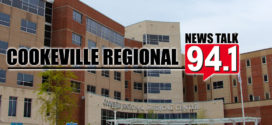The Upper Cumberland Regional Airport Board will take an updated inter-local agreement to the four owners of the airport for approval.
The agreement between Cookeville, Sparta, Putnam County and White County governments allocating the airport responsibilities had not been updated since the 1990s. Putnam County Mayor Randy Porter chairs the board. He said T-DOT kick started the need to upgrade the agreement. Porter said when applying for a bond, T-DOT brought up some issues of semantics regarding the difference between a board and an authority.
“When it comes to federal law, from what I understand from our attorneys, the word authority doesn’t mean anything,” Porter said. “It only means something in state law, and so they were questioning the way we operate as an authority or a board, and of course we’ve always operated as a board.”
Porter said those issues have been cleared up in the new agreement. The board also changed policies in the agreement to better align with local, state and federal laws. The board has now sent the agreement to T-DOT and the FAA for approval.
“It’s just the passage of time,” Porter said. “We review our policies and procedures on the local government every few years to make sure we’re keeping up with any changes in state statues or federal laws and so forth, and that’s what we’re doing with the airport agreement also.”
The four governing bodies will now need to approve the new agreement.
“We’ve got a great working relationship with TDOT and with the FAA,” Porter said. “Then, you have four governments that are operating an airport, which is almost unheard of, and I think it speaks highly of the working relationship that we have in being able to do that, and we’ve even received an award for that, for doing a great job the four governments working together. So, if there’s any issues that come up I think we’ll be able to address them.”
The bond the Airport Board was applying for through TDOT when the issue was discovered was for airport upgrades. Porter said they ended up not even needing the bond to do the project.
“We’ve never had any issues before, and I don’t think they’ve ever issued any bonds before, so it was a first time for that,” Porter said. “With the way everything worked out with the improvements, we wound up not needing the bond. This was just one of those things that kind of opened our eyes that we needed to review that document and fix it. It’s just part of doing business.”
 News Talk 94.1/AM 1600 Where The Upper Cumberland Talks
News Talk 94.1/AM 1600 Where The Upper Cumberland Talks







